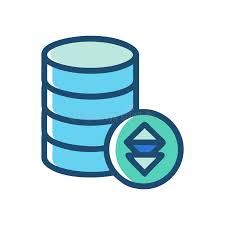
Database Design and Sharding Quizzes
Database design and sharding involve structuring data for efficiency and scalability, with sharding partitioning large datasets across multiple servers to balance load and improve performance.
Want to create your own quiz?
Enter a topic to auto-generate a quiz instantly.
Advanced Indexing: Exploring B-Trees, Hash, and Bitmap Indexes
Deepen your understanding of advanced database indexing techniques including B-Tree, Hash, and Bitmap indexes. This quiz covers key concepts, use cases, and differences, helping you reinforce core knowledge of index types and their efficiency in data retrieval.
CAP Theorem and Database Sharding Fundamentals Quiz
Explore the essentials of the CAP Theorem and its role in database sharding strategies. This quiz helps you understand the principles of consistency, availability, and partition tolerance in distributed database systems while clarifying their impact on real-world sharding scenarios.
Clustered vs Non-Clustered Indexes: Fundamentals Quiz
Explore the essential differences and characteristics of clustered and non-clustered indexes in databases. This quiz is designed to reinforce your understanding of key concepts, usage scenarios, and structural distinctions between these two index types.
Core Concepts in Database Design Principles
Test your knowledge of database design with questions on normalization, keys, relationships, and schema structuring. This quiz is designed for learners who want to build a solid foundation in relational modeling and prepare for interviews or practical database projects.
Cross-Shard Transactions: Challenges and Solutions Quiz
Explore fundamental challenges and solutions involved in cross-shard transactions within distributed ledger systems. This quiz assesses understanding of transaction consistency, coordination methods, and scalability issues using key terminology related to blockchain sharding.
Data Consistency Models in Sharded Systems Quiz
Explore key concepts of data consistency models within sharded systems, examining how data remains reliable, synchronized, and accessible across distributed databases. Enhance your understanding of strong, eventual, and other consistency strategies essential for scalable database architectures.
Database Normalization: 1NF to 5NF Essentials Quiz
Explore key principles of database normalization, from First Normal Form (1NF) through Fifth Normal Form (5NF). Assess your understanding of data redundancy, functional dependencies, and how each normal form improves database organization and consistency.
Denormalization: Optimizing Database Performance and Design
Explore the fundamentals of denormalization in databases, including its benefits, drawbacks, and best practices. This quiz helps you understand when and why denormalization is applied, using relevant scenarios and clear explanations to reinforce key concepts.
Distributed Joins and Query Optimization Quiz
Challenge your understanding of distributed joins and query optimization techniques with ten easy multiple-choice questions covering join types, data distribution, shuffling, execution strategies, and more. Perfect for students and professionals seeking foundational knowledge in distributed databases and query performance tuning.
Essential Multi-Tenant Database Design Approaches Quiz
Explore fundamental multi-tenant database design approaches, distinguishing between key strategies like shared and isolated schemas. This quiz helps clarify important concepts and considerations in multi-tenancy architecture for scalable, secure applications.
Horizontal vs Vertical Database Partitioning Quiz
Deepen your understanding of database partitioning techniques with this quiz focused on horizontal and vertical partitioning. Explore differences, scenarios, and benefits associated with each approach to optimize data structure and performance.
Hotspot Management in Sharded Databases: Quiz
Assess your understanding of handling hotspots in sharded databases, including common causes, prevention techniques, detection strategies, and best practices. Improve your knowledge of sharding patterns and hotspot mitigation methods crucial for database scalability and performance.
Indexing Strategies for Performance Optimization Quiz
Enhance your understanding of effective database indexing strategies with this quiz, designed to reinforce key performance optimization concepts. Explore best practices, common indexing pitfalls, and essential query optimization techniques for efficient data retrieval.
Primary Keys, Foreign Keys, and Constraints Essentials Quiz
Explore fundamental concepts of primary keys, foreign keys, and table constraints with this easy quiz designed to enhance your understanding of relational database integrity and structure. Perfect for brushing up on key relational database management topics and ensuring your foundational SQL knowledge is strong.
Real-World Sharding Case Studies Quiz
Explore practical scenarios and fundamental concepts of sharding with this quiz, designed to help you understand real-world applications, challenges, and benefits of database sharding. Enhance your grasp of distributed database systems, horizontal partitioning, and consistency strategies as seen in authentic environments.
Replication vs Sharding: Key Differences Quiz
Explore the fundamental differences between database replication and sharding with these essential questions. This quiz helps clarify concepts, use cases, and terminology related to data distribution and fault tolerance.

